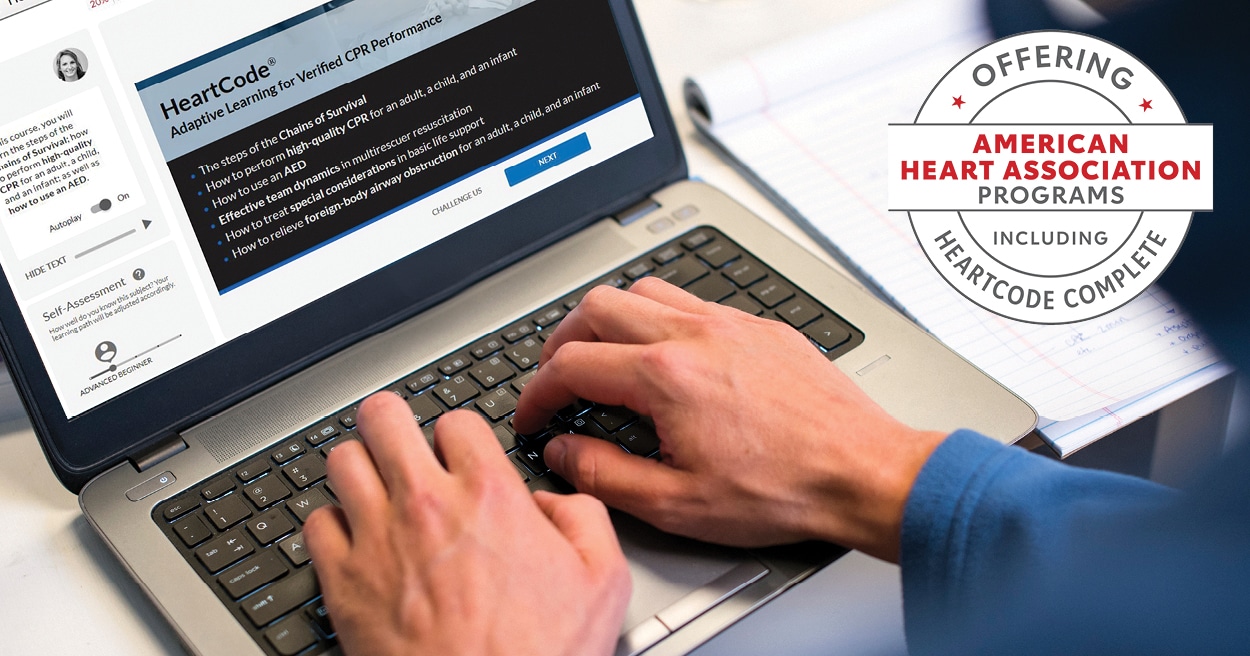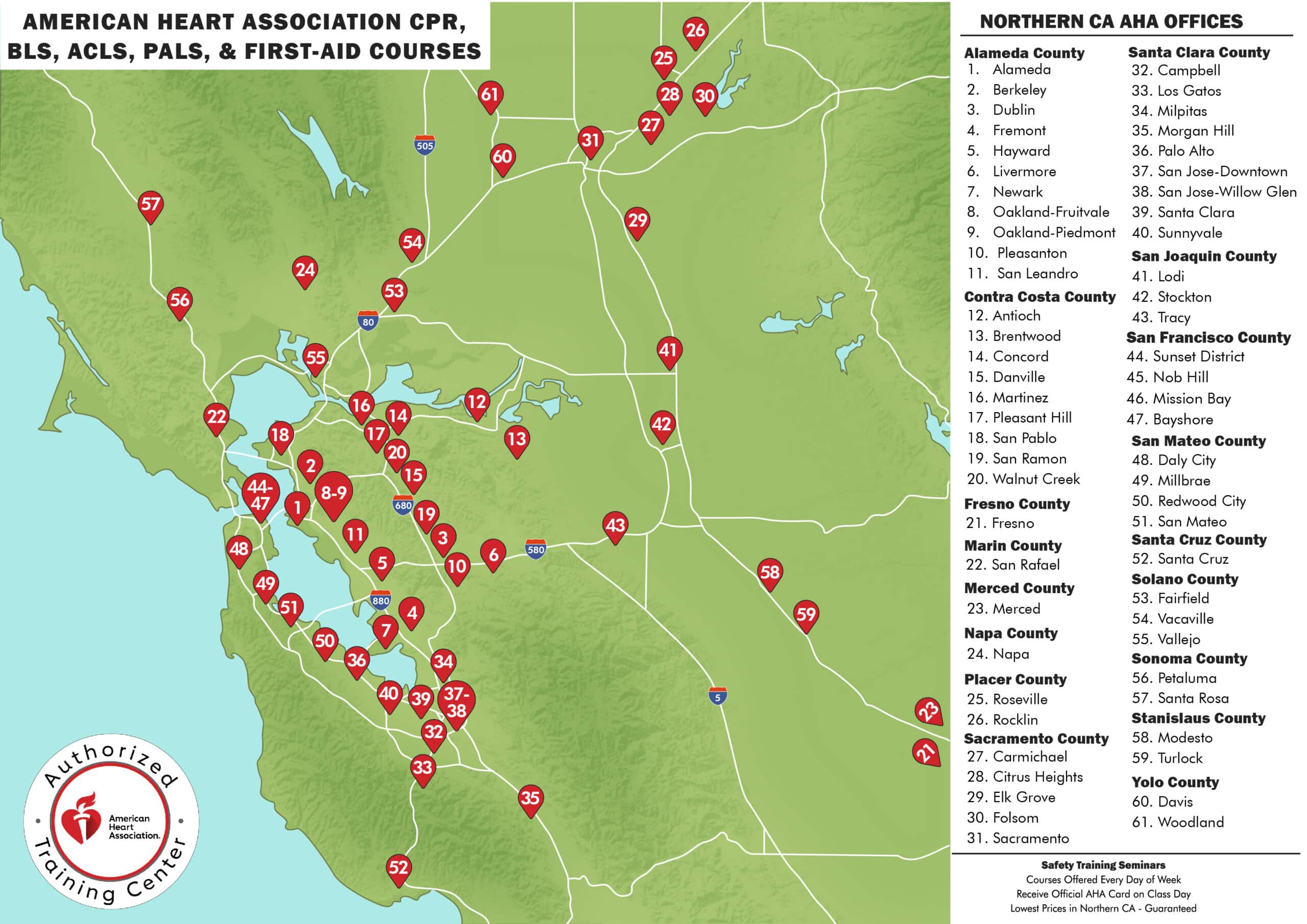American Heart Association© PALS Certification Classes in Fresno

American Heart Association© PALS
Course Name: PALS Pediatric Advanced Life Support (Initial or Renewal)
Online PALS Course Length: 3-4 hours online course (At your home.)
Skills Testing: 30-40 minutes (At one of our over 60 testing sites.)
Price: $290 (This includes the online PALS course, skills testing, & PALS card.)
Certification: American Heart Association© PALS certification card.
When: PALS classes are offered Monday – Sunday from 7 am to 6 pm
Card Issuance: You will receive the PALS certification card on day of class.
Add ons available: ACLS, BLS, First-aid, Opioid, or Bloodborne Pathogens
Low Price Guranetee: Lowest Prices in Fresno, CA. Price matching policy.
View Upcoming PALS Courses in Fresno
PALS Courses Near Me In Fresno & Other Cities

Enhancing Pediatric Emergency Response: American Heart Association PALS Classes in Fresno
In Fresno, a vibrant community in the heart of California’s Central Valley, the need for advanced pediatric emergency care training is paramount. The American Heart Association’s Pediatric Advanced Life Support (PALS) classes offer crucial training to healthcare professionals, empowering them with the skills necessary to effectively respond to critical health issues in infants and children. This article explores the importance of PALS classes in Fresno, detailing how they prepare medical personnel to improve outcomes in pediatric emergencies.
The Importance of PALS Training
Pediatric patients present unique challenges in emergency medical situations. Children are not simply small adults; their physiological responses to illness and injury significantly differ from those of adults. This distinction makes specialized training essential. PALS classes provide healthcare providers with the knowledge and skills to assess and manage potentially life-threatening conditions in children and infants, focusing on techniques that support the resuscitation of a pediatric patient and stabilize their condition until they can be transferred to advanced care.
PALS Classes in Fresno
Fresno’s healthcare landscape includes several major hospitals and healthcare facilities that serve a large pediatric population. PALS classes are thus critically important for local healthcare providers, including pediatricians, emergency room physicians, nurses, paramedics, and other professionals who work directly with children. These classes are structured to enhance skills in the effective management of an infant or child’s airway, arrhythmias, shock, and to ensure proficient use of the appropriate medications.
Course Components and Structure
PALS courses in Fresno are comprehensive and rigorous, involving a blend of theoretical knowledge and practical skills development. Key components of the curriculum typically include:
- Assessment of Pediatric Patients: Techniques for assessing a child’s condition quickly and accurately, which is crucial in emergency situations.
- Advanced Resuscitation Techniques: Detailed training on pediatric CPR, use of AEDs, and airway management specific to children and infants.
- Recognition and Management of Respiratory and Circulatory Emergencies: Strategies to identify and treat conditions like respiratory distress and failure, shock, and cardiac arrhythmias.
- Effective Team Dynamics: Training focuses on improving communication and collaboration among healthcare providers during pediatric emergency scenarios to enhance the resuscitation effort.
- Post-resuscitation Care: Managing patients after resuscitation to improve survival rates and reduce the chance of long-term neurological damage.
The PALS curriculum in Fresno is delivered through a mix of instructor-led lectures, video presentations, and hands-on practical sessions. Simulation-based learning is a critical aspect, allowing participants to engage in controlled, realistic emergency scenarios that improve their decision-making skills, technical abilities, and confidence.
Hands-On Simulation Training
One of the most valuable aspects of PALS training in Fresno is the opportunity for hands-on practice in a simulation environment. These sessions use advanced pediatric manikins and monitoring equipment, enabling healthcare professionals to practice emergency procedures and receive immediate feedback from instructors. This practical experience is vital as it helps solidify the learning and allows trainees to experience the pressure of emergency situations in a controlled setting.
Impact on Community Health
The availability of trained PALS-certified professionals in Fresno significantly strengthens the community’s healthcare system, particularly in its capacity to respond to pediatric emergencies. Improved response times and more effective care can dramatically increase survival rates and positive outcomes in critical situations involving children. The presence of skilled personnel can be reassuring to a community, knowing that their healthcare system is equipped to provide their children with the best possible care in emergencies.
Conclusion
PALS classes in Fresno are more than just training programs; they are a crucial investment in the health and safety of the community’s youngest members. By providing healthcare professionals with specialized skills in pediatric emergency care, PALS classes help to ensure that when children face life-threatening situations, they have the best possible chance for a positive outcome. As Fresno continues to grow, the importance of ongoing PALS training remains clear, highlighting an enduring commitment to protecting and nurturing the city’s future generations.
FAQs
Who should attend PALS certification classes in Fresno?
PALS certification classes are primarily designed for healthcare professionals who are involved in the management of pediatric patients, including pediatricians, emergency physicians, nurses, paramedics, and respiratory therapists.
How long does a PALS certification course typically last?
PALS certification courses usually span over two days, with a combination of didactic instruction, skills practice, and simulated scenarios to ensure comprehensive learning and skill mastery.
Is there a renewal requirement for PALS certification?
Yes, PALS certification is typically valid for two years, after which healthcare professionals are required to undergo PALS renewal courses to maintain their certification.
